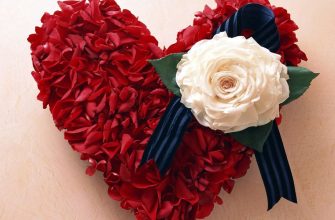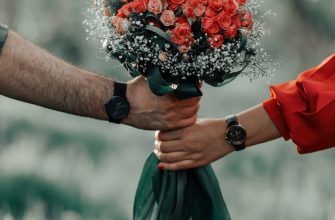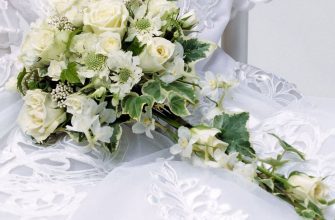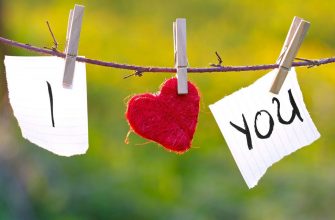
The second group is formed by folk traditions which date back to the times before Christianity, like fortune-telling, some wedding or funeral rituals. The third group is formed by traditions pertaining to official celebrations, like those of the Victory Day when World War II veterans meet in Moscow in front of the Bolshoi Theatre building, and people of all ages come to congratulate them and give them flowers.
My favourite Russian folk tradition is Maslenitsa, or Pancake Week, which is a combination of Christian and pagan traditions and is the last week before the Lent. There are several reasons why I like it so much. Firstly, I am really fond of Russian folk traditions, and Maslenitsa week is full of traditional Russian festival activities: masquerades, snowball fights, sledding and sleigh rides. Secondly, it is a chance to taste traditional Russian food which we don’t very often cook nowadays, as we got used to buy ready-made food in supermarkets. The essential element of Maslenitsa celebration is Russian pancakes, made of rich foods like butter, eggs and milk. They are usually eaten with sour cream or caviar. For many Christians, Maslenitsa is the last chance to meet with the worldly delights before the fasting of Lent. (For Russian official holidays, see Public Holidays in Russia.)
Поделиться ссылкой на эту страницу в любимой соцсети:
Англо-русский словарь онлайн 
5 тестов скорости!
Russian Holidays and Traditions (топик на английском)
ПЛАН-ОТВЕТ. RUSSIAN HOLIDAYS AND TRADITIONS
1. Вступление (Russians enjoy their holidays and celebrate them with a lot of food, presents and in big companies of relatives and friends.).
2. Предоставить общую информацию о праздниках России (three types of holidays; family holidays; state/public holidays: Constitution Day, New Year’s Day, the International Women’s Day, May Day, Victory Day, Independence Day; religious holidays: Christmas, Easter; Shrovetide).
3. Рассказать о самых популярных праздниках России и традициях (New Year’s Day: December 31, national holiday, businesses/public offices/schools are closed; dinner: Russian salad/dressed herring/ sparkling wine, etc., watch the president’s speech, congratulate each other, exchange presents, play snowballs, make a snowman, light fire crackers, etc., Grandfather Frost, Snegurochka; Victory Day: important historic holiday, May 9, Germany’s surrender, public offices, schools and most businesses are closed, local military parade, watch the fireworks display, the biggest parade, veterans wear their medals, give red carnations, lay wreaths at the war memorial sites, school concerts and performances, honour surviving witnesses of World War II; Christmas: Orthodox Christmas, national and religious holiday, January 7th, family dinner, Christmas liturgy, a family holiday, Christmas Eve, Svyatki; Maslenitsa (Pancake Week or Shrovetide): pagan holiday, festival, approach of the spring, renovation of the nature, eat pancakes, the Pancake Week, the Forgiveness Day, visit relatives and friends, a straw doll is burned).
4. Рассказать о зарубежных праздниках, которые отмечаются в России, и выразить своё мнение (foreign celebrations: Halloween, St. Valentine’s Day, parties and masquerades, banned in public schools, St. Valentine’s Day, teenagers and young people, buy small presents, make greetings cards; I don’t mind/like/don’t like foreign celebrations; I think that people in every country should/should not borrow traditions and celebrations from other nations).
5. Рассказать о своём любимом празднике по следующей схеме: name of the holiday, usual activities on this day, family traditions on this day, why you like it.
6. Заключение (I think that holidays are important because they connect people and give them an opportunity to have fun and enjoy themselves.).
QUESTIONS
1. What holidays do the Russians have?
2. What are the three types of Russian holidays?
3. What days are included in family holidays?
4. What celebrations are state or public?
5. What do religion holidays include?
6. When is New Year’s Day celebrated?
7. What are the most popular traditions on this day?
8. How do you usually celebrate New Year’s Day?
9. What is Victory Day and why is it important for the Russians?
10. When is it celebrated?
11. What are the traditions and activities on Victory Day?
12. When is Christmas celebrated in Russia?
13. What are the Christmas traditions?
14. How do you usually celebrate this holiday?
15. What is Maslenitsa? What other names does it have?
16. What are the traditions of this pagan holiday?
17. What foreign celebrations appeared in Russia?
18. What’s your opinion about them?
19. Do you celebrate any of them?
20. What are your favourite Russian holidays?
21. Why do you like them?
22. What do you and your family usually do on these days?
23. Do you think holidays are important? Why (not)?
Топики по английскому языку на тему «Русские традиции»
специалист в области арт-терапии
First, about the Russian people. In my opinion, our main character traits which distinguish us from other people are Russian hospitality, our «open heart» and «golden hands». Wise Russian fairytales reflect this wisdom.
Our people are hardworking, patient, never losing hope for a better life. Russia is a talented nation. Russia gave the world the magnificent names of Pushkin and Lermontov, Chaikovsky and Repin, thousands of names of world famous poets, writers, composers, scientists. All of them are the pride of the nation because they elevate the beauty of our land and people.
Besides these great names in literature and music, our country is famous for Russian traditional folkart, with our skilled craftsmen and women making painted boxes of Palekh, coloured shawls of Pavlov Posad, clay toys of Dymkovo, laces of Vologda, all of which are known all over the world.
Gzhel and Khokhloma are considered to be national cultural symbols of Russia as well as matryoshkas and samovars. The history of khokhloma goes back to the 17th century The production of tableware-dishes, spoons, mugs began at that time in the villages of Suomino and Khokhloma in Nizhniy Novgorod Province, on the banks of the great Russian river Volga. Many carpenters, and painters have been working since then reviving the traditions of old masters. The Khokhloma style is characterized by using plant elements in painting the tableware. The prevailing colours are black, yellow, gold, green and red. And nowadays this craft will hopefully be preserved, to be developed and brought into the future by new generations of painters.
The revival of old crafts and folkart is connected with the current cultural renewal of the traditional arts in Russia, of all peoples inhabiting our big country. There are 100 different native ethnic groups. They are proud of their culture, costumes, dances and language. It is the revival of our souls. Now we recelebrate the forgotten holidays of the past, Troisa, Maslenitsa, and Easter.
Once again we sing Russian folk songs and chastushki, dance Barinya, spring round dances, perform khorovods, and ride in troikas.
Traditional Russian cooking is world-famous for such dishes as okroshka, shi, pelmeni, kurnik, and the beverage kvass.
We have begun to build, rebuild and repair churches, that sadly fell into disrepair during the Soviet era, following the 1917 Bolshevik Revolution. One shining example of this reconstruction is the rebuilding of the Cathedral of Christ the Savior in the center of Moscow. It is truly a divine symbol of reviving human feelings, national pride and patriotism.
Russian Holidays and Traditions
Each single country has its unique customs and traditions. I am going to tell you about some celebrations and traditions in Russia.
Russians really love holidays due to the wide Russian soul. We usually spend them with a lot of delicious food, gifts and in a friendly atmosphere of relatives and mates.
There are three different kinds of holidays in our country. They are family holidays, religious holidays and state holidays. I will tell you about family holidays first. They include birthdays, weddings, anniversaries and others. In each family there are their own traditions of celebrating. For instance, my family celebrates my birthday within two days. On the first day I celebrate it with my parents and grandparents. The second day I celebrate it only in a company of my close friends. They usually congratulate me and arrange a lot of surprises.
State or public holidays in Russia consist of Constitution Day, New Year’s Day, the International Women’s Day, May Day, Victory Day, Russia Day. During these holidays, people have vacation days. They spend time with their lovable families and friends or go downtown to celebrate there. Banks, companies and some stores do not work on these days either.
The New Year’s Day is the foundational event among Russians. We put up a New Year fir-tree and decorate it with rainbow lights and balls.
The biggest fir-tree of the country is put up in the Red Square in Moscow. Tiny fir-trees are put up in shop windows, in streets and squares, even on roofs of buildings. Both children and adults enjoy this celebration very much. Children are allowed to stay awake until the morning and get their presents.
When it is only five minutes to midnight on December, 31, all relatives usually sit altogether in front of the TV and watch the president’s conventional speech. As soon as the minute hand of the maih clock on the Kremlin tower shows midnight, people congratulate each other with the New Year and drink special beverage — champagne. After that there is the time for gifts. After the whole amount of gifts are presented, Russians have fun, eat, drink, and play games during the night till the sunrise.
Victory Day is the most significant and sacred holiday through all Russian history. This is the day for remembering those who defended our country from the German occupiers during World War II. A grand parade is going to be on this day in Red Square every year. Numerous patriotic war movies are shown on television. This is a special day for veterans and every child and adult congratulates them with a lot of flowers and presents.
Religious holidays include Christmas, Easter and others. There is also a pagan holiday — Shrovetide (Pancake Day). As a rule, these holidays are not official, so people usually ought to be at work or school. At Shrovetide, people see spring coming, eat pancakes and burn scarecrows, which symbolizes evil force of winter.
Nowadays foreign celebrations, like Halloween and St. Valentine’s Day, are becoming familiar to Russians. On Halloween almost all clubs organize fancy dress parties. St. Valentine’s Day is mostly popular among young people. They usually prepare some presents for their girlfriends and boyfriends such as bars of chocolate and boxes of sweets and make postcards in the shape of a heart.
Российские праздники и традиции
У каждой отдельной страны есть свои уникальные обычаи и традиции. Я собираюсь рассказать вам о некоторых праздниках и традициях в России.
Россияне действительно любят праздники в качестве одного из аспектов широкой русской души. Мы обычно проводим их с большим количеством вкусной еды, подарков и в непринужденной атмосфере среди родственников и друзей.
В нашей стране три вида праздников. Это семейные праздники, религиозные праздники и государственные праздники. Сначала я расскажу вам о семейных праздниках. Они включают в себя дни рождения, свадьбы, юбилеи и другие. В каждой семье есть свои традиции празднования. Например, моя семья празднует мой день рождения в течение двух дней. В первый день я праздную его с родителями, бабушками и дедушками. Второй день я праздную его только в компании моих близких друзей. Они обычно поздравляют меня большой компанией и устраивают множество сюрпризов. Государственные, или общественные праздники в России состоят из Дня Конституции, Нового года, Международного женского дня, 1 Мая, Дня Победы, Дня России. Во время этих праздников у людей много выходных дней. Они проводят время с любимыми членами семьи и друзьями или идут в центр города, чтобы праздновать там. Банки, компании и некоторые магазины в эти дни тоже не работают.
Новый год является фундаментальным событием для россиян. Мы выставляем новогоднюю елку и украшаем ее радужными огоньками и шарами. Самая большая елка страны устанавливается на Красной площади в Москве. Крошечные ели выставлены в витринах, на улицах и площадях, даже на крышах зданий. Как дети, так и взрослые очень радуются этому празднику. Детям разрешают бодрствовать до утра и получать подарки. Когда до полуночи 31 декабря остается 5 минут, все родственники, как правило, сидят вместе перед телевизором и смотрят традиционную речь президента. Как только минутная стрелка главных часов на башне Кремля показывает полночь, люди поздравляют друг друга с Новым годом и пьют особый напиток — шампанское. После этого настает время для подарков. После того как все подарки преподнесены, россияне веселятся, едят, пьют и играют в игры до восхода солнца.
День Победы — это наиболее значимый и священный праздник из всех на протяжении русской истории. Это день для почитания тех, кто защищал нашу страну от германских оккупантов во время Второй мировой войны. Грандиозный парад обычно бывает в этот день на Красной площади каждый год. Многочисленные патриотические военные кинофильмы показывают по телевидению. Это особый день для ветеранов, и каждый ребенок и взрослый поздравляют их с прекрасными цветами и подарками.
Религиозные праздники включают Рождество, Пасху и другие. Существует также языческий праздник — Масленица. Как правило, эти праздники не государственные, поэтому людям обычно надо быть на работе или в школе. В Масленицу люди встречают приход весны, едят блины и сжигают чучело, которое символизирует злую силу зимы. В настоящее время такие иностранные праздники, как Хэллоуин и День святого Валентина, стали знакомы россиянам. На Хеллоуин почти все клубы организуют маскарады. День святого Валентина в основном популярен среди молодых людей. Они обычно подготавливают некоторые подарки для своих подруг и бойфрендов, такие как плитки шоколада и коробки конфет, и делают открытки в форме сердца.
1. What kinds of holidays are there in Russia?
2. What do family holidays consist of?
3. Does each family have their own traditions of celebration? What are they?
4. What does public holiday mean?
5. What kinds of state holidays do you know?
6. How do Russian people celebrate New Year?
7. What is the most significant and sacred holiday for Russians?
8. What kinds of holidays are not official?
unique уникальная
wide широкая
delicious вкусная
gift подарок, дар
mate товарищ (друг)
to include включать (в себя), содержать (в себе)
anniversary юбилей
to congratulate поздравлять
to arrange устраивать, организовывать
to consist состоять (из)
downtown центр города (деловой)
either также
foundational фундаментальный, основательный
rainbow радужный
fir-tree елка
to put up устанавливать, выставлять
to allow позволять, разрешать
roof крыша
altogether все вместе
in front of впереди
conventional традиционная (обычная)
as soon as как только
hand стрелка часов
to show показывать
beverage напиток
sunrise восход
significant значительный, важный
to defend защищать
occupier оккупант
numerous многочисленный
pagan языческий
Shrovetide Масленица
ought to следует, должен
scarecrow чучело
to symbolize символизировать
evil злой
force сила
nowadays в наши дни, в настоящее время, теперь
familiar знакомый, привычный, близкий
to prepare подготавливать
bar плитка, кусок
postcard открытка
Самые популярные русские и английские традиции на английском языке
Традиции (traditions) и обычаи (customs) существуют у каждого народа. Они передаются из поколения в поколение. Традиции – это история народа. Английский календарь полон необычных событий, которые являются основой обычаев, и некоторым из них более сотни лет. Изучающим английский язык, очень важно знать английские традиции на английском языке и уважать их так же, как обычаи своего народа.
Английские традиции (English Traditions)
Изучение английских традиций поможет понять культуру, ценности и особенности мировоззрения английского народа. Англичане берегут свои обычаи и гордятся ими. Рассмотрим самые распространенные английские традиции.
Полный английский завтрак (The Full English Breakfast)
Английский полный завтрак включает много различных продуктов питания.
| Описание традиции на английском | Перевод с английского |
| Throughout Britain Full breakfast is famous. | Полный завтрак славится по всей Великобритании. |
| Breakfast can include a variety of juices, fresh or stewed fruits, and cereals. | Завтрак может включать в себя различные соки, свежие или тушеные фрукты, и хлопья. |
| But the main breakfast items are eggs with bacon, which are complemented by mushrooms, roasted tomatoes, sausages, toast and tea with sweets. | Но основными продуктами завтрака являются яйца с беконом, которые дополняются грибами, жареными помидорами, сосисками, тостами и чаем со сладостями. |
Послеобеденный английский чай (Afternoon Tea)
Послеобеденный английский чай был любимой церемонией королевы Виктории.
| О традиции послеобеденного чая на английском | Как переводится с английского |
| The ritual of afternoon tea was introduced in the early 1840s in the UK. | Ритуал послеобеденного чая был введен в начале 1840-х годов в Великобритании. |
| It evolved as a mini meal to stem the hunger and anticipation of an evening meal at 8 pm. | Он превратился в мини-еду, чтобы остановить голод и ожидание ужина в 8 вечера. |
| Afternoon tea includes sweet pastries and cakes, buns with whipped cream and jam, sandwiches. | Послеобеденный чай включает сладкую выпечку и пирожные, булочки со взбитыми сливками и джемом, бутерброды. |
Английская Масленица – Блинный день (Pancake Day)
На английскую Масленицу устраивают гонку со сковородкой.
| Описание английской традиции | Перевод английского текста |
| Shrove Tuesday has become better known as Fat Tuesday in the US and Pancake Day in the UK. | Масленичный вторник стал более известен как «жирный» вторник в США и Масленица в Великобритании. |
| Pancake Day is a very long tradition in the UK, it has been celebrated since the early 1400s. | Масленица очень давняя традиция в Великобритании, ее отмечают с начала 1400-х годов. |
| One of the more common ways of celebrating Pancake Day is making pancakes at home. | Одним из наиболее распространенных способов празднования Масленицы является приготовление блинов в домашних условиях. |
Английский чемпионат по Марблс (Marbles Championship)
На протяжении многих лет команды из разных стран соревнуются с английскими командами.
| Традиция игры в Марблс на английском | Как переводится английский текст |
| The event is open for everyone of any nationality or age. | Мероприятие открыто для всех желающих любой национальности и возраста. |
| Two teams of 6 players of any skill level, gender, age, using the tip of the finger take turns to aim a larger marble (18mm diameter) to drive other marbles out of the ring. | Две команды из шести игроков любого уровня мастерства, возраста, пола, по очереди, используя кончик пальца, прицеливаются более крупным шариком (диаметром 18 мм), чтобы выбить другие шарики из кольца. |
| This ancient event takes place annually on Good Friday since 1932. | Эта древняя традиция проводится ежегодно в Страстную пятницу с 1932 года. |
| The winner gets the title and a silver trophy. | Победитель получает титул и серебряный трофей. |
Ночь Гая Фокса/костра (Night of Guy Fawkes/Bonfire)
Ночь костра – английский праздник, прославляющий спасение английского короля Джеймса I.
Если Вы устали учить английский годами?
Наши читатели рекомендуют попробовать 5 бесплатных уроков курса «АНГЛИЙСКИЙ ДО АВТОМАТИЗМА» с Анастасией Божок.
Те, кто посещают даже 1 урок узнают больше, чем за несколько лет! Удивлены?
Без домашки. Без зубрежек. Без учебников
Из курса «АНГЛИЙСКИЙ ДО АВТОМАТИЗМА» Вы:
Английские обычаи и традиции (English Сustoms and Traditions) – рассказ
| Рассказ на тему традиций на английском | Перевод текста с английского |
| The Interesting English Traditions | Интересные английские традиции |
| Great Britain, like every other country in the world, has very interesting, strange and amazing traditions. | Великобритания, как и любая другая страна в мире, имеет очень интересные, странные и удивительные традиции. |
| Thanks to ancient customs people keep in touch with their ancestors and get a lot of impressions and pleasure. | Благодаря древним обычаям люди поддерживают связь со своими предками и получают много впечатлений и удовольствия. |
| If you are a connoisseur of unique traditions or a lover of English culture, you just have to know about the following English customs. | Если вы ценитель уникальных традиций или любитель английской культуры, вы просто должны знать о следующих английских обычаях. |
| Night of Guy Fawkes/ Bonfire | Ночь Гая Фокса/ костра |
| Annually on November 5th, the well-liked celebration takes places all over Great Britain, also known as the Bonfire Night or the Guy Fawkes Night. | Ежегодно 5 ноября популярное празднование проходит по всей Великобритании, также известное как ночь костра или ночь Гая Фокса. |
| It offers sparklers, huge fireworks displays, and, of course, bonfires. | Оно включает бенгальские огни, огромные фейерверки, и, конечно же, костры. |
| The story behind this celebration is not so jolly though, it goes back to 1605 when a person called Guy Fawkes wanted to burn down the British House of Parliament but was caught. | История этого празднования не такая веселая, хотя она восходит к 1605 году, когда человек, которого звали Гай Фокс, хотел сжечь британскую палату парламента, но был пойман. |
| So, the tradition has lived on and every night on November 5th everybody lights this bonfire to symbolize that moment. | Итак, английская традиция продолжалась, и каждый вечер пятого ноября каждый зажигает этот костер, чтобы символизировать этот момент. |
| Festival of Cheese Rolling | Фестиваль «Сырная гонка» |
| The Cheese Rolling festival is one of the most unique events observed in the world up to date. | Фестиваль «Сырная гонка» – одно из самых уникальных событий, наблюдаемых в мире до настоящего времени. |
| Gloucester cheese is rolled from the top of the hill. Participants of the race down the hill after it and the first person over the finish line at the bottom of the hill wins the cheese. | Глостерский сыр катится с вершины холма. Участники гонки спускаются по склону за ним, а первый человек за финишной чертой у подножия холма выигрывает сыр. |
| This traditional festival was started primarily for the people of Brockworth – the local village, but has now evolved into a popular world event. | Этот традиционный фестиваль был начат главным образом для жителей Брокворта – местной деревни, но теперь превратился в популярное мировое событие. |
| Charming of Worms in Willaston | Очарование червей в Вилластоне |
| Without doubt one of the strongest traditions in Great Britain, worm charming, goes as far as almost being considered a sport. | Без сомнения, одна из самых странных традиций в Великобритании, очарование червей доходит почти до того, чтобы считаться спортом. |
| In order to charm worms you can do anything: sing, dance, tap dance until you have received a sufficient number of worms. | Чтобы очаровать червей, вы можете делать все что угодно: петь, танцевать, бить чечётку, пока не получите достаточное количество червей. |
| This is a very funny competition gathers a lot of participants and fans. | Это очень веселое соревнование, которое собирает множество участников и поклонников. |
| You must already think this is a joke, however, just try and tell that to the people from Willaston and see what happens. | Вы уже должны думать, что это шутка, но попробуйте рассказать об этом людям из Вилластона и посмотреть, что произойдет. |
| Willaston this is the place where the World Worm Charming Championships take place and you can be certain there are quite a lot, serious competitors, here. | Вилластон, это место, где проходит чемпионат мира по очарованию червей, и вы можете быть уверены, что здесь достаточно много серьезных конкурентов. |
| The competition takes place starting 1980 and each competitor gets a 3 by 3 piece of land to try and charm as many worms as possible. | Конкурс проходит с 1980 года, и каждый участник получает участок земли 3 на 3, чтобы попытаться очаровать как можно больше червей. |
| Many English customs may seem meaningless, bizarre or strange to people from other countries. | Многие английские обычаи могут показаться людям из других стран бессмысленными, причудливыми или странными. |
| But we must remember that traditions are a way of preserving the heritage of ancestors and culture of every nation. | Но мы должны помнить, что традиции – это способ сохранения наследия предков и культуры каждого народа. |
| The British are an unusual and interesting nation, unlike anybody else, their traditions are worthy of respect. | Британцы – необычная и интересная нация, непохожая ни на кого другого, их традиции достойны уважения. |
Русские традиции на английском языке
Иностранцы всегда восхищаются русскими традициями. Многие обычаи сопровождаются веселыми застольями и гуляньями в кругу родных и друзей. Тем, кто изучает английский язык необходимо научиться рассказывать о традициях своей страны на английском, чтобы в разговоре с англоязычным собеседником представить обычаи русского народа во всех красках.
Российский Новый год (Russian New Year)
Как рассказать о Новом годе на английском:
| Описание традиции на английском | Перевод с английского |
| Day of New Year is by far the most loved holiday in Russia, it even trumps Christmas. | День Нового года – самый любимый праздник в России, он даже превосходит Рождество. |
| Father Frost, snowman, Snow Maiden, Christmas tree, gifts – the happiest moments of all for children. | Дед Мороз, снеговик, Снегурочка, рождественская елка, подарки – самые счастливые моменты из всех для детей. |
| One hour before midnight, we all sit down at the table and start to celebrate to say «goodbye» and «thank you» to the passing year. | За час до полуночи мы все садимся за стол и начинаем праздновать, чтобы сказать «до свидания» и «спасибо» уходящему году. |
| At midnight, we raise our glasses with sparkling wine during the chiming of the Kremlin clock. | В полночь мы поднимаем бокалы с игристым вином под бой кремлевских часов. |
| We congratulate each another and make a wish for the new year. | Мы поздравляем друг друга и загадываем желание на Новый год. |
Пасха (Easter)
Как рассказать о Пасхе на английском:
| Пасхальная традиция на английском | Как переводится с английского |
| Easter in Russia is a very important occasion to the Russian Orthodox Church and its followers. | Пасха в России очень важное событие для Русской православной церкви и ее последователей. |
| The ceremony begins on Easter Saturday, and at midnight all hear bells ringing and the sound of voices singing. | Церемония начинается в пасхальную субботу, и в полночь все слышат звон колоколов и пение голосов. |
| On the morning of Easter Sunday, a massive breakfast of sausage, eggs, and bacon (as well as the sweet stuff) fills the table. | Утром в Пасхальное воскресенье на стол накрывается обильный завтрак с колбасой, яйцами и беконом (а также сладостями). |
| Bellies are full, people visit family and friends to share eggs, as well as popping into the cemetery to visit the graves of the deceased. | Животы полные, люди навещают родных и друзей, делятся яйцами, а также забегают на кладбище, чтобы посетить могилы умерших. |
Рождество (Christmas)
Как рассказать о семейном празднике Рождестве на английском:
| Описание рождественской традиции на английском | Перевод английского текста |
| Christmas in Russia is normally celebrated on the 7th of January in accordance with the Russian Orthodox Julian Calendar. | Рождество Христово в России обычно празднуется 7 января по русскому православному юлианскому календарю. |
| The official Christmas holidays in Russia are from the 31st of December until the 10th of January. | Официальные рождественские праздники в России проходят с 31 декабря по 10 января. |
| On Christmas Day, hymns and carols are sung. | На Рождество поют гимны и колядки. |
| People gather in churches which have been decorated with the usual Christmas trees, flowers and colored lights. | Люди собираются в церквях, украшенных рождественскими елками, цветами и разноцветными огнями. |
| On January 7, families attend Church and settle down for a Christmas dinner. | 7 января семьи посещают церковь и устраивают рождественский ужин. |
Масленица (Maslenitsa)
Как рассказать о Масленице на английском:
| Описание традиции на английском | Перевод с английского |
| Maslenitsa is the ancient holiday of Slavic. | Масленица – это древний славянский праздник. |
| All days of the Maslenitsa week has a special meaning: 1) Monday – Welcoming. 2) Tuesday – Playing. 3) Wednesday – Regaling. 4) Thursday – Revelry. 5) Friday – Eye of mother-in-law. 6) Saturday – Gathering of sister-in-law. 7) Sunday – Forgiveness day. | Все дни Масленичной недели обладают особым значением: 1) понедельник – встреча; 4) четверг – шумное веселье; 5) пятница – внимание теще; 6) суббота – посиделки у невестки; 7) воскресенье – «прощёный» день. |
| And the most fun and anticipated part is the burning of Lady Maslenitsa! | И самая веселая и ожидаемая часть – сжигание Масленицы! |
ARVE Error: Mode: lazyload not available (ARVE Pro not active?), switching to normal mode
ARVE Error: src mismatch
url: https://www.youtube.com/watch?v=RYOvkCXA9O8
src in: https://www.youtube-nocookie.com/embed/RYOvkCXA9O8?wmode=transparent&rel=0&feature=oembed
src gen: https://www.youtube-nocookie.com/embed/RYOvkCXA9O8Actual comparison
url: https://www.youtube.com/watch?v=RYOvkCXA9O8
src in: https://www.youtube-nocookie.com/embed/RYOvkCXA9O8?wmode=transparent&rel=0
src gen: https://www.youtube-nocookie.com/embed/RYOvkCXA9O8
Сочинение на английском по теме «Традиции в России» (Traditions in Russia)
| Сочинение на тему русских традиций на английском | Перевод английского сочинения |
| Russian traditions | Русские традиции |
| Each country has many traditions, customs and holidays, including public and religious. | Каждая страна имеет много традиций, обычаев и праздников, в том числе общественных и религиозных. |
| The New Year is one of the public holidays. | Новый год является одним из государственных праздников. |
| All children and most adults are looking forward to and love this holiday. | Все дети и большинство взрослых с нетерпением ждут и любят этот праздник. |
| Many preparations are made before it: people buy a New Year’s tree, decorate it. | Много приготовлений делается перед ним: покупают новогоднюю елку, украшают ее. |
| At 12 o’clock under the beat of the Kremlin chimes, all make wishes, congratulate each other and drink champagne. | В 12 часов под бой Кремлевских курантов, все загадывают желания, поздравляют друг друга и пьют шампанское. |
| In the morning, under the New Year’s tree, everyone finds a gift that Father Frost brought. | Утром под новогодней елкой каждый находит для себя подарок, который принес Дед Мороз. |
| Christmas in Russia is celebrated on 7 January (Gregorian calendar) and commemorates the birth of Jesus Christ. | Рождество в России празднуется 7 января (григорианский календарь) и ознаменовывает рождение Иисуса Христа. |
| In Russia, Christmas is one of the most important holidays of the Orthodox Church. | В России Рождество – один из важнейших праздников православной церкви. |
| This holiday became national since 1992. | Этот праздник стал государственным с 1992 года. |
| At the end of February, Maslenitsa festivities take place all across Russia. | В конце февраля, масленичные гуляния проходят по всей России. |
| This traditional Russian holiday is famous for its pancakes. | Этот традиционный русский праздник славится своими блинами. |
| They have a lot of fillings: sour cream, caviar, salmon and also sweet! | У них много начинок: сметана, икра, лосось, а также сладкие! |
| The climax of Maslenitsa is when the straw effigy of Maslenitsa is burned. | Кульминацией Масленицы является сжигание соломенного чучела Масленицы. |
| During this time people bake pancakes and visit their friends. | За это время люди пекут блины и навещают своих друзей. |
| In Russia 8th of March is Day of Women. | В России 8 Марта – День женщин. |
| Husbands help their wives to do everything about the house and to prepare a festive dinner. | Мужья помогают женам делать все по дому и готовить праздничный ужин. |
| On this day, women can relax, enjoy the holiday and forget about household chores: cooking, cleaning, and washing dishes. | В этот день женщины могут отдохнуть, насладиться праздником и забыть о домашних делах: приготовлении пищи, уборке и мытье посуды. |
| Christ’s Revival is the most valuable holiday of Orthodox which is called Easter. | Возрождение Христово – самый ценный праздник православных, который называется Пасха. |
| This holiday is filled with the smells of delicious Easter cakes and the beauty of colorful eggs. | Этот праздник наполнен запахами вкусных пасхальных куличей и красками разноцветных яиц. |
| On Saturday, people bake Easter cakes, paint eggs, and then carry them in the Church for consecration. | В субботу люди пекут пасхальные куличи, красят яйца, а затем несут их в церкви для освящения. |
| On the night of Saturday to Sunday, believers go to Church for Easter services. | В ночь с субботы на воскресенье верующие ходят в церковь на пасхальные богослужения. |
| On May 9th is celebrated Victory Day. | 9 Мая отмечается День Победы. |
| This day is a sacred and dramatic holiday for Russia. | Этот день для России – священный и драматический праздник. |
| On May 9th all the people of the country commemorates the heroes of the Great Patriotic War. | Вся страна чествует миллионы жертв Великой Отечественной войны. |
| Unofficial Russian holidays are also observed: |
1) Fourteenth of January – Old New Year.
2) Fourteenth of February – Day of St. Valentine.
3) Orthodox Easter Sunday.
4) Pancake week.
5) Twelfth of April – Day of Cosmonautics.
6) Thirtieth of October – Halloween;
7) Last Sunday of November – Mother Day.
1) 14 января – старый Новый год;
2) 14 февраля – День святого Валентина;
3) Православное Пасхальное воскресенье;
4) Масленичная неделя;
5) 12 апреля – День космонавтики;
6) 30 октября – Хэллоуин;
7) Последнее воскресенье ноября – день Матери.
Заключение
Чтите свои традиции и уважайте традиции английского народа. Знание английских обычаев таких стран, как Британия и Америка, поможет вам в понимании английской культуры и в общении с иностранными собеседниками. Кроме того, это поднимет ваш уровень английского. Удачи!



















